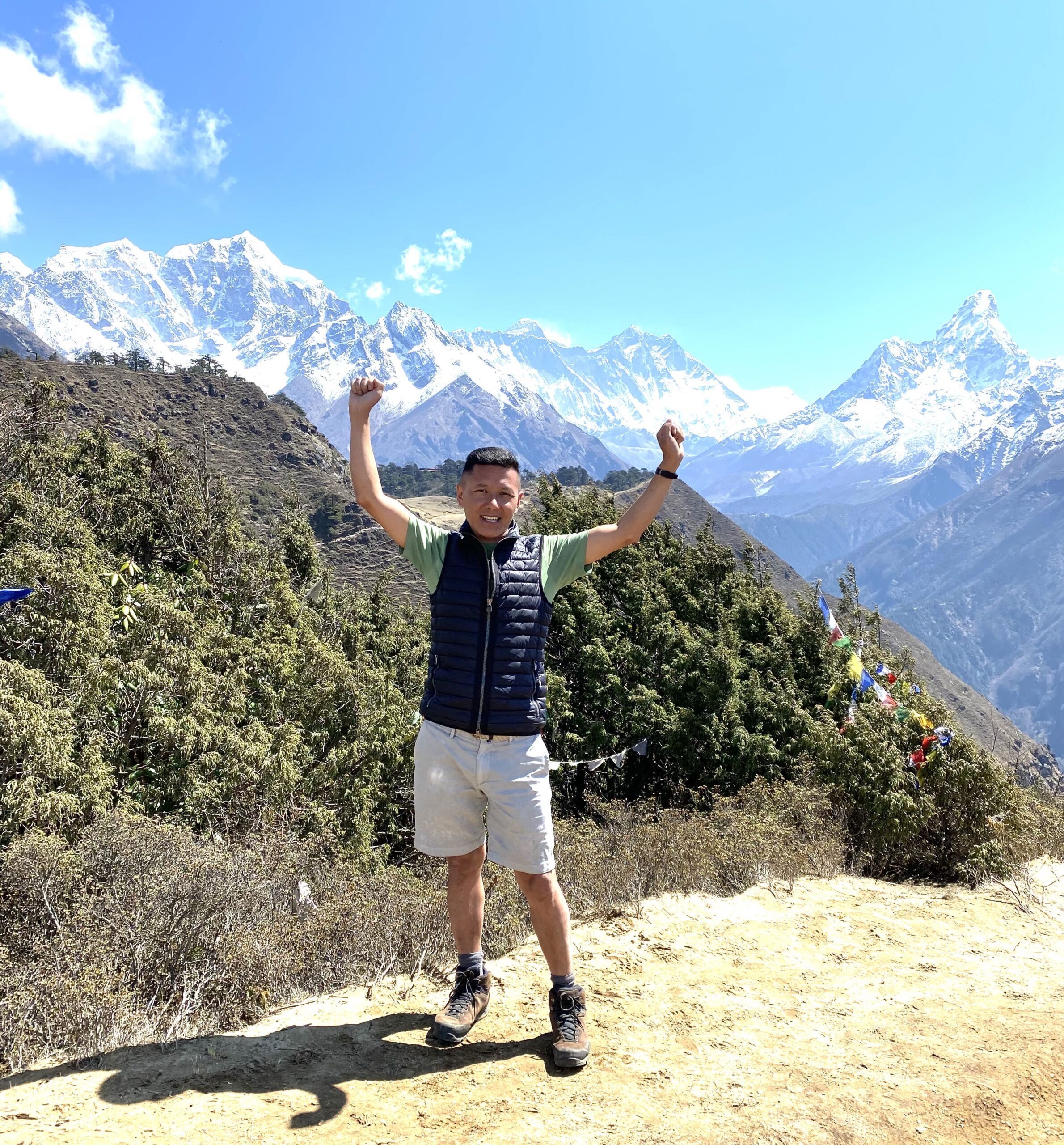- 23 Days
- 5575m
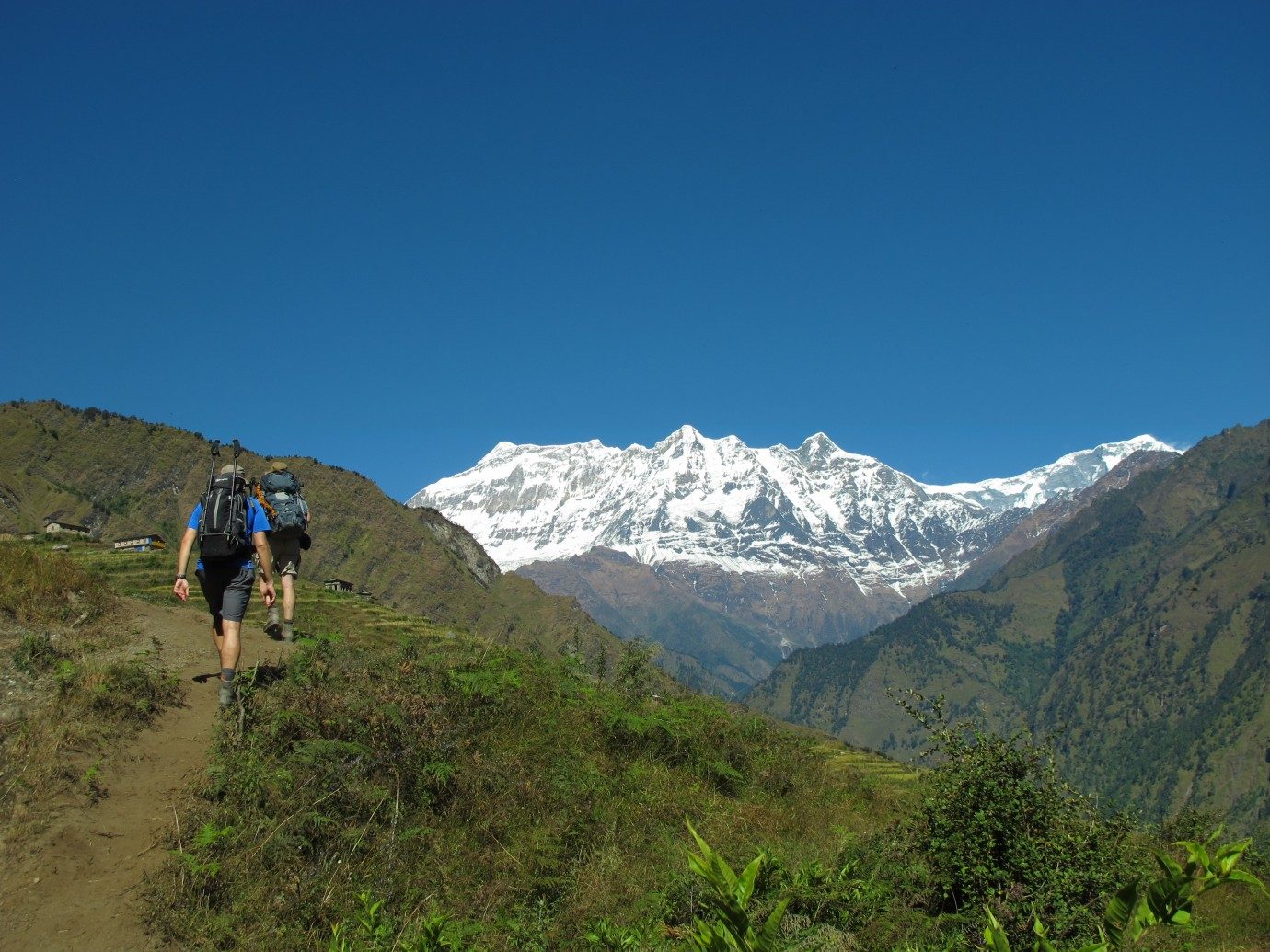
The Kanchenjunga Circuit Trek provides an incredible Himalayan experience. The third tallest peak, Mt. Kanchenjunga is the main attraction of this trek. This trek offers a unique opportunity to immerse oneself in pristine natural beauty. For those aspiring to trek in the Kanchenjunga Region, it’s crucial to determine the optimal time for the journey.
The Kanchenjunga Circuit Trek is a multi-day expedition, not a one-day or short-term venture. To successfully complete it within a minimum of two weeks, thorough preparation is crucial. This involves physical readiness, logistical arrangements, permits, and understanding associated details.
Let’s explore more about the Kanchenjunga Circuit Trek:
The Kanchenjunga Circuit Trek is one of the greatest treks in Nepal Himalayas. The trekking trail follows the mountainous border of Nepal with India and Tibet.
Mount Kanchenjunga is the 3rd tallest mountain in the world at an altitude of 8,586m.
On the trail, the scenery is full of rivers, waterfalls, green meadows, rhododendrons, birch and pine forests, the Yalung Glacier and, of course, travelers are accompanied by the magical Himalayan mountains.
Kanchenjunga area was closed to travelers / trekkers until the late-1980. Today the area is protected by the Kanchenjunga Conservation Area and a special trekking permit is required. With this restriction, the spectacular and unique flora and fauna of the region is still in pristine condition today.
In fact, there are several peaks above 6,000m Among the impressive cluster of mountain ranges are five main glacial systems. Of these, Talung, Zumuand Rathong flow to Sikkim, while the Kanchenjunga and Yalung glaciers flow west into the mighty Tamor River of Nepal.Due to the fact that this is a remote trek, a good fitness level and some trekking experience is necessary.
The recent addition to the hiking map of the Great Himalayan Trail, tourism is also being promoted in this, and other, remote regions so there are opening up of more guest houses on the route.
While it is positive for the local people and communities, this would be a good time to go to Kanchenjunga before more travelers/hikers discover the region!
Spring brings a burst of vibrant colors to the Kanchenjunga Circuit Trek. The remote path is adorned with rhododendrons, oak, birch, and pine forests, creating a picturesque landscape with hues ranging from fiery red to delicate pink.
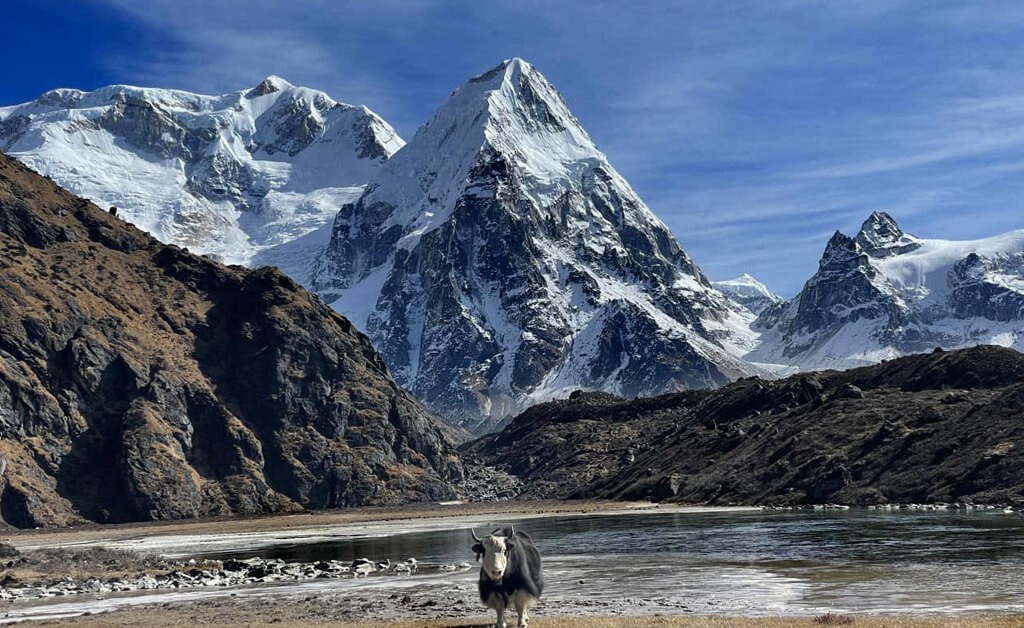
In addition, the clear skies during this season offer excellent visibility of the snow-capped peaks, including Mt. Kanchenjunga, due to fewer clouds.
The Kanchenjunga Circuit Trek is ideal in spring, but autumn, spanning September to November, is a close second. During this season, the crisp and dry conditions are perfect for trekking through the remote trails of the Kanchenjunga Circuit, aligning well with trekkers’ preferences.
To embark on the Kanchenjunga Circuit Trek, trekkers must obtain two permits from the Nepal Tourism Board, issued by the Nepal Government: the Kanchenjunga Conservation Area Project Entry Permit (KCAP) and the Restricted Area Entry Permit.
The KCAP permit, costing NRs. 2,000 per person, is crucial for trekking through the protected lands of the Kanchenjunga Conservation Area, aimed at preserving the area’s flora and fauna. This permit remains valid until the trek concludes, with no additional fees.
On the other hand, the Restricted Area Entry Permit is essential for hiking in Tapethok and Yamphuding VDCs. It costs USD 10 per person for the first week and incurs an additional USD 10 per person for each subsequent week after the second week.
The difficulty of the Kanchenjunga Circuit Trek is influenced by various factors such as the terrain, season, climate, and weather. Additionally, your mental and physical well-being can affect the challenge of the journey.
Weather greatly affects your Kanchenjunga Circuit Trek. Optimal times are spring and autumn, but if you choose summer, monsoon, or winter, be well-prepared. Summer and monsoon bring heavy rainfall, hindering the trek and posing risks like landslides.
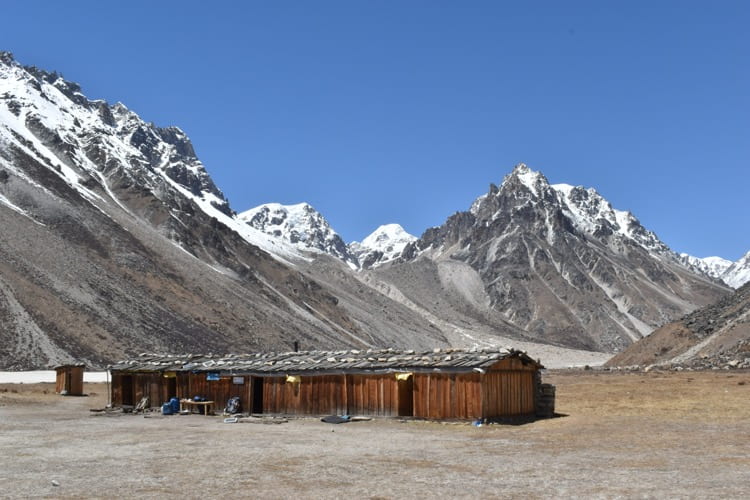
Winter is extremely cold, dropping below 0 degrees Celsius, leading to complex living conditions. Sharp winds and heavy snowfall increase the risk of altitude sickness, frostbite, and avalanches, causing distractions and losses.
Winter poses a significant challenge for trekkers on the Kanchenjunga Circuit Trek due to extremely cold weather and heavy snowfall in the Himalayan region. The resulting slippery routes make walking difficult, requiring climbers to navigate icy rocks and cross frozen streams at high altitudes. Adequate preparation is crucial for tackling these challenging conditions.
Altitude sickness, a common ailment for high-altitude trekkers and climbers, is primarily caused by oxygen deficiency and the body’s struggle to adapt to higher elevations. Symptoms include nausea, vomiting, and dizziness, with severe cases potentially resulting in High Altitude Cerebral Edema (HACE) or High Altitude Pulmonary Edema (HAPE).
Thin air at high altitudes reduces oxygen levels, making it difficult to breathe and increasing the risk of illness, which can occur at any time, though it is more prevalent during winter.
In the prime season for Kanchenjunga Circuit Trek, the risk of Altitude Sickness is significant, especially at the highest point, Kanchenjunga Base Camp (5140 meters).
To mitigate altitude-related problems like AMS (Acute Mountain Sickness), HACE (High Altitude Cerebral Edema), and HAPE (High Altitude Pulmonary Edema), prioritize acclimatization through gradual ascent and descent. Ensure ample rest, hydration, and a balanced diet for overall well-being and strength.
The trails to the Kanchenjunga region are rugged and seasonal, with rocky and steep landscapes. To navigate these paths, it’s essential to be physically fit and well-prepared with the right gear. Therefore, engaging in muscle training, altitude sessions, and cardio workouts to enhance stamina, endurance, and energy is advisable for trekkers.
On the first day of the Kanchenjunga Circuit Trek, you will arrive at Tribhuvan International Airport via flight from your home country. After arriving at Kathmandu, our officials will welcome you and then escort you to your respective hotel.
You will stay overnight at a hotel in Kathmandu with amenities like a personal bedroom with an attached bathroom and hot showers.
The very next day on Day 2, we will have a free day to explore the Kathmandu Valley and prepare for our Kanchenjunga Circuit Trek. Early in the morning, we will start with a warm breakfast and then head towards some of the intriguing attractions of Kathmandu, including Pashupatinath, Swayambhunath, Boudhanath, and Kathmandu Durbar Square.
The historical and cultural significance of these places will blow your mind for sure. Later, we will check on our gear and equipment required for the trek. We will stay overnight at a hotel.
Today, we will embark on a flight from Kathmandu to Bhadrapur in Jhapa District. It takes around 45 minutes to 1 hour in flight to reach the spot. Starting off our journey from Kathmandu, we will escape the bustling city enjoying the views of the surrounding hills and snow-capped mountains in the north.
After arriving at Bhadrapur Airport, we will set on a drive to Illam, which takes additional few hours. Upon reaching Illam, one of the beautiful towns in Nepal, we will check into the hotel for overnight stay.
Now it’s time to be near the Kanchenjunga Circuit Trail. For that, we must reach Taplejung District first. It takes around 4 to 5 hours to drive from Illam to reach Taplejung. The journey will take us through several beautiful traditional and modern settlements, some with Buddhist monasteries.
Some of the settlements include Gopetar, Amarpur, Sinhapur, Namlepati, and more. We can get the insights into the practice of Buddhism in these areas. The large chortens, mani walls, and prayer flags around the landmarks are worth watching.
Tonight, we will stay at a tea house.
On the fifth day of the Kanchenjunga Circuit Trek, our journey to Chirwa begins. We start our day with a warm breakfast at Taplejung and embark on a hike through the uphill trail. First, we trace our journey towards Aangshyanpati and then continue walking towards Mitlung.
During our journey, we will pass through lush green forests and terraced fields, making our journey more enjoyable and soothing. From there, we will pass several settlements before making our stop at Sinuwa. A few hours of trek and we reach an intersection of two ways at Sirise.
From Sirise, we catch the trail from the right side and head towards Chirwa. We must traverse several villages of Tawa and Thiwa before reaching Chirwa. Overnight, we will stay at a tea house.
Today, we will start our journey from Lelep. In between Chirwa to Lelep, there comes a landslide zone, where you must be careful while walking. After crossing the zone, we will reach Taplethok, where the hospitable community resides. Also, the beautiful scenery of the green hills and snow-covered peaks in the north will be admirable.
From there, we follow the banks of Tamor River and reach Temewa in a few hours. As we proceed ahead from Temewa, we must cross a suspension bridge over Tamor River and then finally step at Lelep.
On the seventh day, we hike from Lelep crossing a suspension bridge over Tamor River to reach Sukethum first. From there, our trail goes uphill through the dense forest of rhododendron and pine towards Jongim.
We must follow the trail alongside Khungsa River to reach Amjilosa at 2308 meters by the evening. Upon reaching Amjilosa, we will stay at a tea house overnight.
From Amjilosa, the trail to Kanchenjunga Circuit stays uphill through the dense forest. We will start our journey early in the morning after breakfast and buckle up for the trek.
As we leave Amjilosa behind and hike for a few hours, we will first reach Thyanyani. From there, we can have a magnificent view of the mystic mountain peaks, including Kanchenjunga, Boktoh, and many more. We will proceed with our hike again, finally reaching Gyabla after a few hours.
Ghyabla is a Buddhist settlement featuring several chortens, monasteries, and prayer flags. Tonight, we will stay at a tea house.
On the ninth day, we will start our day with a warm breakfast at Gyabla and then prepare for the trek. Today, we will be reaching Ghunsa at 3595 meters above sea level. Since the location is at high altitude, we must prepare physically and mentally as the trek might be harsh.
Leaving Gyabla behind, we will catch an uphill trail that stretches towards Phale at 3240 meters above sea level. We will continue our trek enjoying the views of the Himalayas and the green hills. We catch the trail alongside Ghunsa Khola and then commence on a few hours of trek reaching Ghunsa in the evening.
Acclimatization is very important during the high altitude treks like Kanchenjunga Circuit Trek. As we have already reached 3595 meters above sea level, we must have proper rest and sleep. Similarly, we must focus on adapting our body to the rising altitude.
Intake of nutritious food, hydrating our body, and gradual ascent can help us adapt well in the high altitude. High altitude locations are prone to altitude sickness which can be very harsh. So these measures will help us avoid the illness. Some trekkers even use medications such as Diamox to stay out of danger.
Today, we will be embarking on one of the longest duration treks in the Kanchenjunga Circuit Trek. We will start our journey from Ghunsa and reach Kambachen at 4050 meters above sea level.
Leaving Ghunsa behind, we must catch the trail alongside Ghunsa River and reach Rampuk Kharka, a high altitude pastureland. Traversing the meadows and the rocky terrains ahead, we will head towards Kambachen on around 4 hours of trek (from Rampuk Kharka).
Upon reaching Kambachen, we will stay at a tea house. The views of the Himalayas, including Mount Kanchenjunga, are very stunning from this location.
Now the real trekking seems to start from Kambachen. Today, we will traverse two glaciers alongside our trail to Lhonak. Starting our journey with breakfast in Kambachen, we will head towards Ramtang, a Buddhist settlement in the region.
Before reaching Ramtang, there comes a rockfall area, where trekkers must be very careful while passing around. Also, there is a Mera Glacier, which offers dazzling views during the sunshine.
Traversing these areas will lead us to the region of Kanchenjunga Glacier, which moves slowly and steadily all around the year. As we head uphill for a few hours, we will finally reach Lhonak, our today’s destination.
After reaching Lhonak, it’s time to descend. Today, we will follow the same trail we used to reach Lhonak and arrive at Ghunsa Village. We will traverse several settlements including Kambachen and Rampuk Kharka while descending.
Upon reaching Ghunsa, we will stay at a tea house.
Day 14 takes us to Sele Le at 4290 meters above sea level. We will climb an uphill trail from Ghunsa towards the Southside and then hike for around 5 to 6 hours to reach Sele Le.
The journey to Sele Le Camp is very exciting as it offers the panoramic views of the mountains in the north with the sightings of green hills in the surroundings. We will camp a tent and stay overnight at Sele Le Camp.
On the fifteenth day of the Kanchenjunga Circuit Trek, we will start our journey from Sele Le Camp and then reach Selele La at 4480 meters above sea level. To reach there, we must traverse a hill called Phokte Danda.
From Selele La, we will continue our journey towards Sinion La at 4646 meters above sea level. After a few hours of trek, we will reach Andha Phedi at 3370 meters. From there, we will divert our trail from the right side and then reach Cheram at 3870 meters. Tonight we will stay at a camp.
Today, we will be reaching our destination Kanchenjunga South Base Camp from Cheram. We will begin our journey from Cheram after a morning breakfast and head towards Ramche. It takes around 4 to 5 hours to reach there.
To reach there, we must traverse several settlements, including Yalung Bara and Lapsang. Yalung Bara stands at 3900 meters, while Lapsang is at 4432 meters above sea level. We can have the stunning views of Mount Kanchenjunga from both locations.
After embarking around 40 minutes of walk from Ramche, we will finally reach Kanchenjunga South Base Camp, which is situated on the edge of the glacier. You can find insights into Buddhism there as the location is surrounded by Buddhist prayer flags.
On the seventeenth day of the Kanchenjunga Circuit Trek, we will descend towards Torongding. To reach the spot, we will follow the same trail till we reach Cheram. From Cheram, we will descend straight downhill towards Torongding, instead of getting towards Selele La.
From Cheram, we will first reach Anda Phedi and the trail goes straight downhill. After a few hours of trek, we will finally reach Torongding, where we will stay overnight at a tea house.
Trek from Torongding to Yamphuding is around 5 to 6 hours in duration. Starting our journey early in the morning, we will first head towards Lasiya Bhanjyang at 3310 meters above sea level. From there, the trail is very harsh, featuring rocky terrains and remoteness.
From Lasiya Bhanjyang, we will pass across Chhitre and catch a trail alongside Amji Khola. A few hours of trek ahead and we will reach Yamphuding. Tonight, we will stay at a tea house.
Today, we will descend all the way down to Khebang from Yamphudin. We will start our trek in the morning catching the diverted trail towards Makduwa. Leaving Makduwa behind, we will further continue our journey through the rugged terrains and pass Ghatichinne Bhanhyang.
We must traverse another pass at Ekchana Bhanjyang at 2070 meters above sea level and cross Rata Danda before reaching Khebang.
Today, we will descend down towards Khamdine, which lies towards South of the Khebang Village. We will leave Khebang early in the morning and then reach Pedang first, which is a busy town around the region.
From Pedang, we will make a straight descent towards Khanigaon and Bunguwa before reaching Khamdime. A few hours of trek from Bunguwa and we will reach Khamdime. It takes around 5 to 6 hours of trek to reach Khamdime from Khebang.
Today, we will take a drive to Bhadrapur in Jhapa District on a jeep from Khamdime. We will enjoy the local scenery of green hills, terraced fields, ever-flowing rivers, and lush green forests during the drive. Upon reaching Bhadrapur, we will stay overnight at a hotel.
Day 22 brings the return flight to Kathmandu from Bhadrapur. We will onboard a flight from Bhadrapur Airport and head towards the capital city, which takes around an hour.
This is your last day in Nepal. So, during the first half, you will be preparing yourself to return back to your home country. Later, our officials will escort you to Tribhuvan International Airport from where you will onboard a flight to your home.
No one knows who is going to suffer from altitude sickness. It’s doesn’t follow that younger and fitter people will not have altitude sickness where the older and the less fit will. This is not related to (general) fitness or age. Talk to your home doctor.
There are prescription drugs that help prevent the onset of altitude sickness. But most of all, go slowly, listen to your body, be aware of any changes, and listen to your guide if you feel that you are experiencing symptoms (which you might not notice).
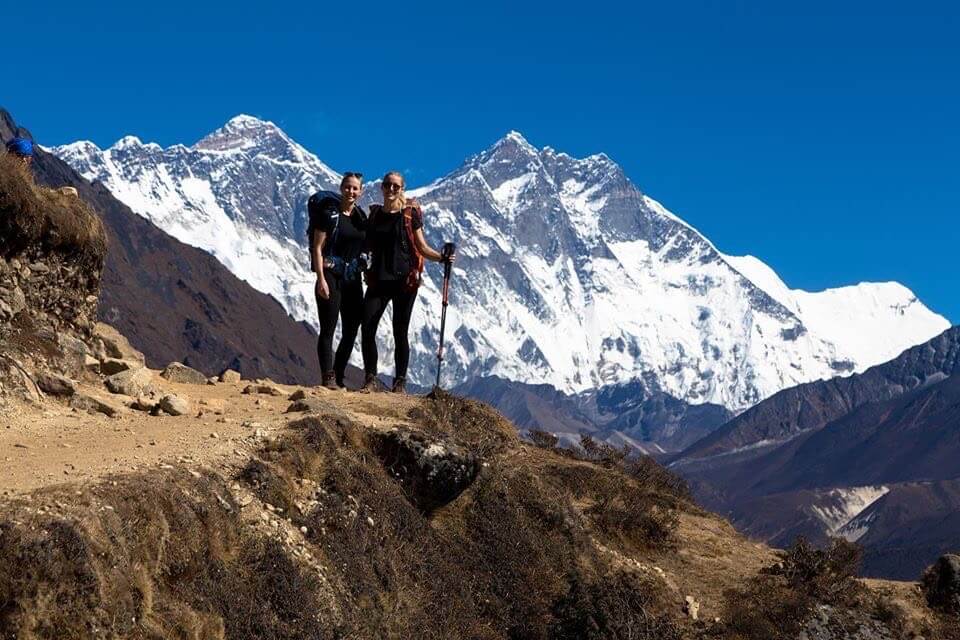
Magical Summits is your key to seeing the Himalayas through a local lens. Being a native Sherpa-owned active holiday company, by providing unparalleled and personalized customer service, Magical Summits is born to the top of Nepal’s very competitive travel market.
At Magical Summits, we pride ourselves in making that extra effort to give all of our clients our personal touch, crafting each holiday to suits your needs, desires, and budget, to create unforgettable vacation experiences. Ready? Let's go!
"I was born and raised in Nepal, nearby Everest region. I am proud to be a native Sherpa, and I have been a Mountain guide over a decade now. Following my passion, I decided to start helping travelers with their travel plans! I think life is a journey, a trip where you collect experiences when you share with other people and with nature."
